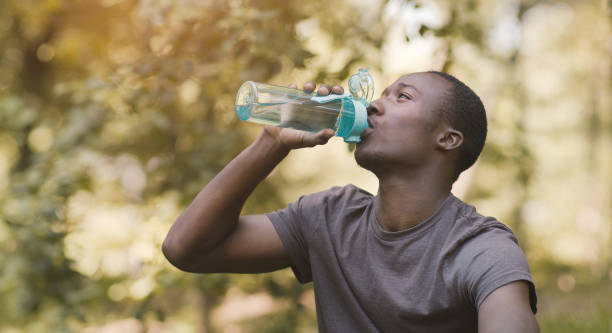- Empty cart.
- Continue Shopping
The Importance of Hydration for Male Athletes

Hydration is a critical component of athletic performance and overall well-being for athletes of all genders. However, for male athletes, proper hydration is of particular importance due to physiological differences and the unique demands of sports and exercise.
1. Temperature Regulation
Proper hydration is essential for regulating body temperature during physical activity. Male athletes, like all individuals, produce heat during exercise. Sweating is the body’s primary mechanism for dissipating this heat. When sweat evaporates from the skin’s surface, it helps cool the body down. However, if an athlete is dehydrated, their ability to sweat effectively is compromised, increasing the risk of heat-related illnesses such as heat exhaustion and heat stroke.
2. Muscle Function and Performance
Hydration is critical for muscle function and athletic performance. Dehydration can lead to muscle cramps, reduced muscle strength, and early fatigue. Male athletes engaged in strength and endurance sports must maintain proper fluid balance to optimize their performance and minimize the risk of injuries related to muscle fatigue.
3. Cognitive Function
Dehydration can impair cognitive function, affecting decision-making, concentration, and coordination. In sports that require split-second decisions and precise movements, such as football or basketball, maintaining cognitive sharpness through hydration is crucial for success and safety.
4. Endurance and Stamina
Male athletes participating in endurance sports, such as long-distance running or cycling, are especially vulnerable to dehydration. Depletion of fluids and electrolytes can lead to reduced endurance, slower race times, and increased risk of heat-related exhaustion. Staying well-hydrated is a key factor in maintaining stamina during prolonged activities.
5. Recovery and Injury Prevention
Hydration plays a role in post-exercise recovery and injury prevention. Proper fluid intake after exercise helps replenish lost fluids and supports the body’s recovery processes. Dehydrated muscles and tissues are more prone to strains, sprains, and overuse injuries.
6. Testosterone Levels
There is some evidence to suggest that dehydration may temporarily reduce testosterone levels in men. Testosterone is a hormone that plays a significant role in muscle development, strength, and overall athletic performance. Ensuring adequate hydration can help maintain optimal testosterone levels in male athletes.
7. Electrolyte Balance
In addition to water, electrolytes like sodium, potassium, and magnesium are crucial for proper muscle function and hydration. Male athletes who engage in intense physical activity and sweat heavily may lose significant amounts of electrolytes. Replenishing these electrolytes through hydration and balanced nutrition is essential for performance and overall health.
Hydration Guidelines for Male Athletes
To stay adequately hydrated, male athletes should follow these guidelines:
- Pre-Exercise Hydration: Start your workout or competition well-hydrated by drinking fluids in the hours leading up to it. Aim to consume about 16-20 ounces (about 475-590 milliliters) of water or a sports drink 2-3 hours before exercise.
- During Exercise: Depending on the intensity and duration of your activity, aim to drink about 7-10 ounces (about 207-296 milliliters) of fluids every 10-20 minutes during exercise. Sports drinks containing electrolytes can be beneficial for longer, high-intensity workouts.
- Post-Exercise Hydration: Rehydrate after exercise by consuming fluids and electrolytes lost through sweat. A general guideline is to drink at least 20-24 ounces (about 590-710 milliliters) of fluid for every pound (0.45 kilograms) of body weight lost during exercise.
- Monitor Urine Color: Check the color of your urine as a simple hydration indicator. Pale, light-colored urine typically indicates adequate hydration, while dark urine may suggest dehydration.
- Listen to Your Body: Pay attention to your thirst cues. Thirst is your body’s way of signaling that it needs fluids.
- Individualize Hydration Needs: Everyone’s hydration needs are different. Factors like body size, activity level, and environmental conditions influence how much fluid you need. Experiment with your fluid intake to find what works best for you.
- Avoid Overhydration: While staying hydrated is crucial, excessive water intake without electrolytes can lead to a condition called hyponatremia, where blood sodium levels become dangerously low. Balance is key.
In Conclusion, Hydration is a cornerstone of athletic performance and overall health for male athletes. Proper fluid balance is essential for temperature regulation, muscle function, cognitive sharpness, endurance, recovery, and injury prevention. By following hydration guidelines, listening to their bodies, and individualizing their fluid intake, male athletes can optimize their performance and well-being on and off the field. Remember that staying hydrated is not just a matter of drinking water during exercise; it’s a holistic approach to maintaining health and peak athletic performance.








